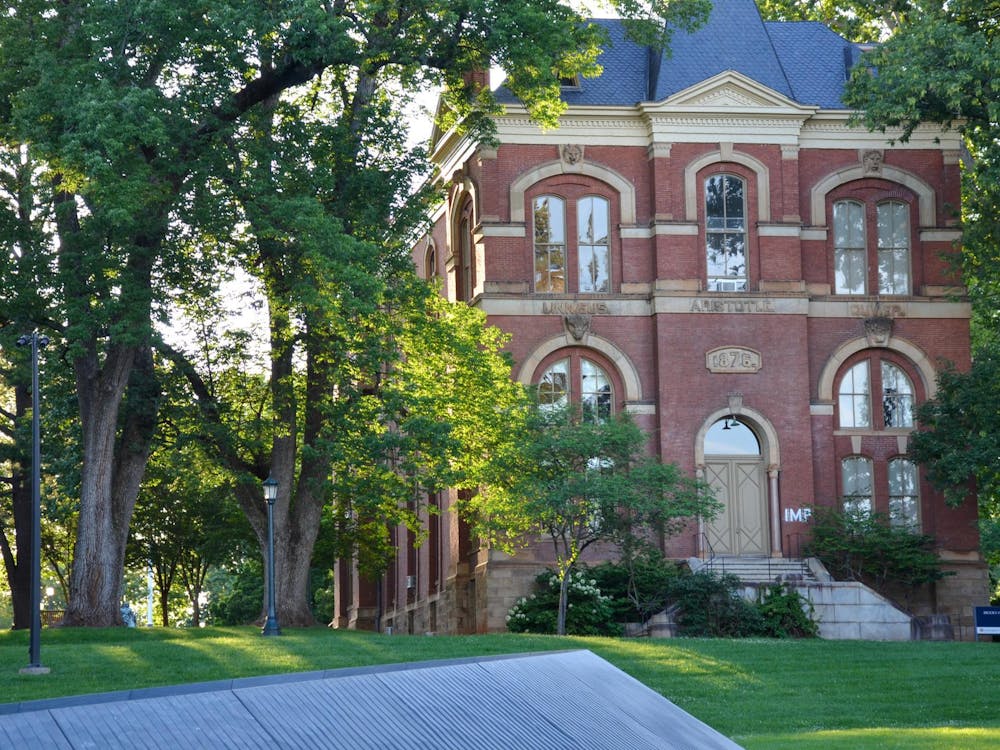The University Health System launched a new educational Web site designed to provide up-to-date information about all aspects of cardiovascular medicine to physicians, medical students and the general public last Saturday.
The project, called www. CardioVillage.com, began several years ago when University cardiologists Larry Gimple and Ralph Buckley designed an interactive CD-ROM called "Cases in Cardiology." That project won the 1997 Macromedia prize for the best new adult education CD-ROM, and Gimple and Buckley soon decided to expand it into a Web site. It has taken about two years to get the site up and running, said Jann Balmer, head of the University Office of Continuing Medical Education.
The Web site's design reflects its University origins. The opening page presents the viewer with a central "Rotunda" surrounded by "learning pavilions" on one side and an "exhibit hall" on the other. Visitors can click on the learning pavilions to access information about different areas of cardiovascular medicine.
Now, only the coronary artery disease pavilion is entirely up and running. At least eight more pavilions, however, are in the works.
"We plan to have at least two more, 'Echocardiography' and 'Nuclear Cardiology,' before next June," Balmer said.
Inside the pavilions, visitors can view cases and tutorials and can complete both pre- and post-tests designed to measure their knowledge of the subject matter.
Physicians who complete the CardioVillage activities can receive Continuing Medical Education credit for their efforts. This is particularly important, explained University Pediatric Cardiology Prof. Karen Rheuban, because as of Jan. 1, all physicians in Virginia will be required to obtain a certain amount of CME credit in order to renew their licenses every two years.
With Internet sites like CardioVillage available, Rheuban said, "Physicians everywhere will be able to complete their Continuing Medical Education and get up-to-date information without leaving their patients and communities."
The exhibit hall portion of the Web site is the electronic equivalent of an exhibit hall at a medical conference; it contains information about new medical advances presented by the site's corporate sponsors, chief among which is Dupont Pharmaceutical Corporation.
Balmer emphasized, however, that the corporate sponsors do not control any of the Web site's content outside of the exhibit hall.
"It's kind of like public television," she said. "They provide money, but they don't have a say in the content." Instead, University physicians are providing the initial content and all information will be peer-reviewed before it is put on the site.
CardioVillage is not the first Web site to offer current medical information and programs for CME credit. According to Balmer, though, it is unique in several ways.
"Most of these types of sites are text-based," she said. "This one is more interactive."
In addition to text, the Web site will include visual and video images and audio components.
"One can do things like view echocardiograms, one can view cases. This is a wonderful tool to educate health professionals using technology that is state-of-the-art," Rheuban said.
Additionally, the Web site can be customized to the viewer's level of expertise. Visitors log in at one of five levels, from "patient" to "medical student" to "cardiologist," and the information and tutorials provided at each level assume a different amount of background knowledge. Access to the Web site is free, but CME credit costs $5 per credit hour.
So far, CardioVillage's developers are pleased with its reception. Gimple and Buckley presented the site at the annual American Heart Association meeting in Atlanta this week and, according to Balmer, the site received several thousand hits over the weekend.
"The more the better," she said. "I'm really pleased. This is the kind of C.ontinuing Medical Education we need."






